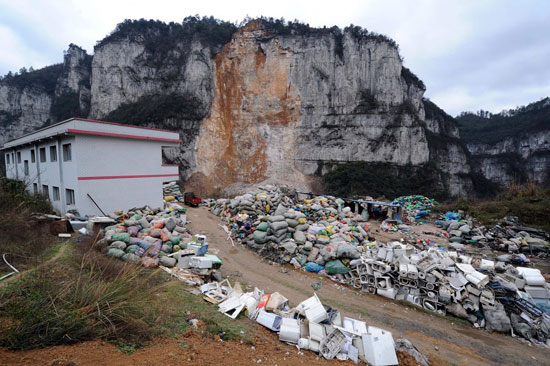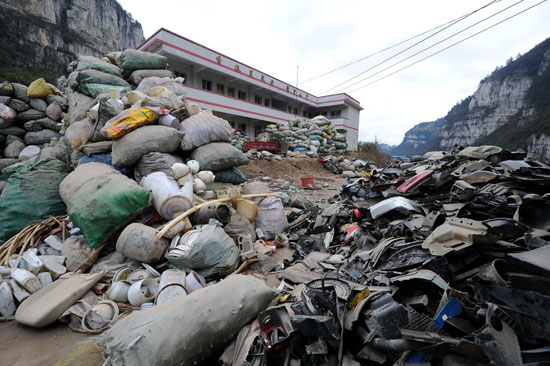
 |
| A Project Hope school is abandoned and filled with piles of trash in Laoshan village, Longchang township of Kaili county, Feb 2, 2013. (Photo/Xinhua) |
A primary school in Guizhou province mainly funded by charitable donations is being used as a trash recycling station and will soon be demolished for the construction of a highway, which experts said revealed local authorities' poor management of charitable assets.
Chen Baoguo, secretary-general of the Guizhou Youth Development Foundation, said the organization dispatched an investigation team after Chinese media revealed on Thursday that a school named after its brand project was abandoned and filled with piles of trash in Laoshan village, Longchang township of Kaili county.
"We found out that the school's land was taken over for a highway project in January 2010 and all 11 students there were sent to study at the county primary school eight months later," he said.
The building was used as a chicken farm for a short while and later became a trash recycling station, he said.
Although the local government named the school after Project Hope — an influential charity project initiated by the China Youth Development Foundation and its 38 provincial branches to help poor rural students access education — it did not inform the foundation that the school has been used for other purposes, he said.
The school was built "out of good will" to enable local children to receive an education near their homes, but the site selection turned out to be a mistake, he said.
The school was given 350,000 yuan ($56,000) — 200,000 yuan from the Lingchuan Charitable Foundation in Hong Kong and the rest from the local government — to build the two-story teaching building in a new location.
The new school with eight classrooms was completed and put into use in November 2008.
The local educational department predicted the school would attract around 200 students, but only a maximum of 30 attended during its short history, Chen said.
Chen also revealed that the local education bureau has decided to invest 3.9 million yuan to build a teaching facility in the township's primary school that will be named after both the Hope Project and the foundation to honor their contributions to local education.



















![]()
